In my first year as a premedical student at the University of Rochester, I began working as an EMT (emergency medical technician).
I enjoyed the work, but my interactions with patients were necessarily fast-paced and fleeting. In September of my senior year, I explored a different side of medicine by volunteering at a local hospice house; there, engaging with patients and hearing their stories over time was a critical element of care.
Among the hospice patients, I connected especially to Jackson, a man in his sixties. Jackson’s voice, interests and punk style reminded me of my own grandfather, who had passed away just a year earlier.
Like my grandfather, Jackson seemed unconcerned about fitting the “normal” mold. My grandfather had sported neon coats and feathered hats, while Jackson wore bold silver jewelry and long rocker hair. As avid smokers and drinkers, Jackson and my grandfather would surely have become brotherly companions if they’d ever met.
My grandfather and I were close. He always supported me, even when I came out as gay, and he always made me feel I had the potential to make an impact. Because Jackson so resembled my grandfather, a sense of camaraderie quickly developed between us.
We first bonded over cooking, discussing our favorite dishes and cuisines. He described his love of home-cooked meals, and I shared fond memories of my parents’ preparing comfort food like brisket and babka. When I confided my love of hot sauce, Jackson laughed and said, ”You know, they don’t have anything spicy here! I tried looking for hot sauce in the kitchen, but nothing!”
On my next shift, I made sure to bring him a bottle of smoked Tabasco from home.
After some time, Jackson began mentioning his desire for female companionship, and his struggles with dating. (Because the hospice house was fairly small, patients were permitted to host partners.) Jackson was no stranger to online dating and frequently criticized “scammer profiles.” He told me that he was looking for meaningful physical intimacy.
As a gay man, I wasn’t accustomed to these types of conversations. Rarely did heterosexual men share their relationship struggles with me, and never had I engaged in this sort of dialogue as a healthcare provider. To add to my uneasiness, I thought that Jackson might be sharing his concerns with me because he saw me as a straight man with multiple female partners.
“How are your girlfriends?” he would ask jokingly. “Ladies’ man, you must be. You dog!”
In response, I would chuckle nervously, hoping that my rosy cheeks would convey the heteronormative mantra “Gentlemen don’t kiss and tell.”
I don’t usually disclose my queer identity in medical settings. I’m often fearful of a negative response, and usually this side of my identity is irrelevant to my patients. In fact, I often find myself actively hiding my queer identity: In a heteronormative world, I feel safer that way.
However, Jackson’s assumptions provoked an internal debate. I wondered if my façade of straightness was somehow wrong.
Have I gained Jackson’s trust under false pretenses? I asked myself. If he knew the truth, would he have preferred to confide in a different volunteer—someone who was genuinely straight? What if he discovers that I’m a phony heterosexual?
I knew that Jackson might feel just as comfortable sharing his dating challenges with me even if he knew I were gay. He might feel safe sharing his concerns with me simply because I was an attentive, empathetic listener, and because we shared a friendly bond.
Still, the internal dialogue continued. I considered that Jackson might have trusted that I could relate to his struggles as a man because he assumed that we enjoyed a mutual understanding and shared experience of heterosexuality. With this in mind, I wondered, What if, when Jackson first asked about my girlfriends, I had told him about my boyfriend? Would I have taken something away from him—the sense that he had a peer who truly understood him?
Ultimately, I maintained the façade of heterosexuality with Jackson, and we remained good friends until I returned home to Canada for medical school. After that, I kept up to date on his care through the hospice’s weekly emails. Although Jackson passed away in the summer, I still think about him from time to time, remembering his humor and bold sense of style.
Looking back, I don’t regret the decision to hide my sexual identity. Jackson’s desire was for physical and emotional intimacy with a partner—a basic desire that transcends variations in sexuality, and one that I feel I understood, despite our different identities.
During my time with Jackson, I wondered if I’d wronged him by concealing an important element of my identity. As I progress in medicine, I’ll encounter many more patients, and I’m unsure if it will be wise to hide my identity so frequently.
Just last week, when buying custom scrubs, I passed up the pride-flag chest embroidery for a less controversial llama emblem. In making that choice, I wondered if I was depriving my future queer patients of a subtle sign of commonality that might have helped them feel more comfortable.
I know that a provider’s self-disclosure can be inappropriate or unnecessary—but I also see self-disclosure as a potential tool. In cases where I sense that sharing my personal identity or feelings could help my patient to feel more at ease about disclosing sensitive medical information, I will take a chance and reveal the entire, human side of me.

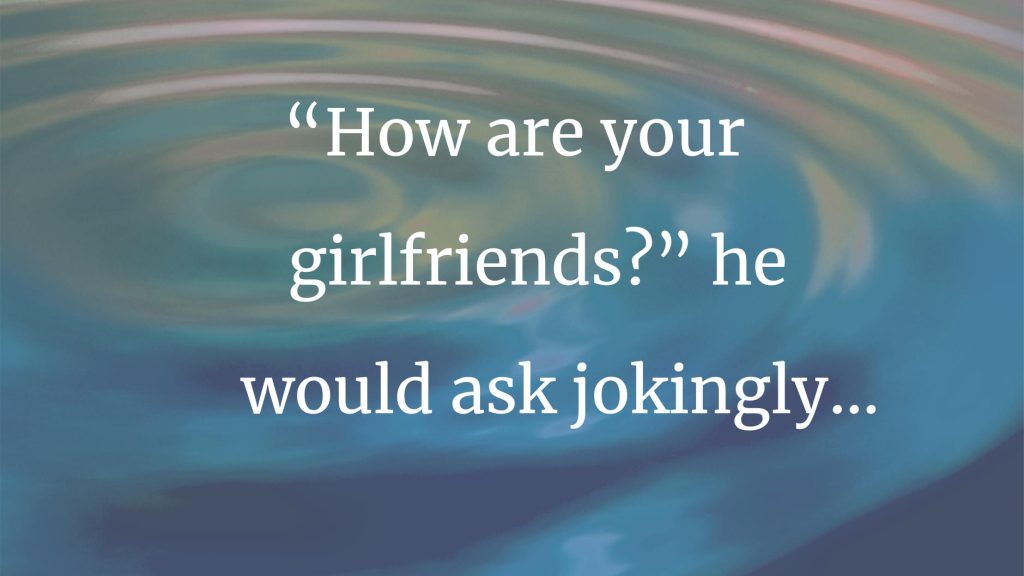
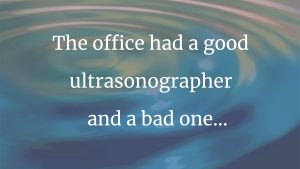
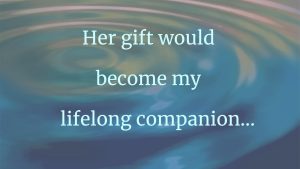
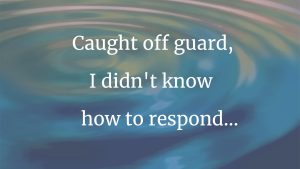
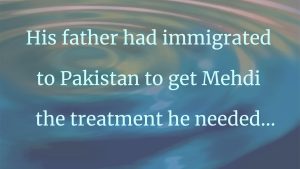
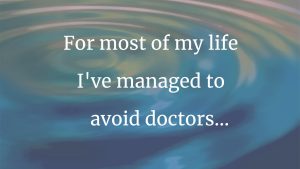
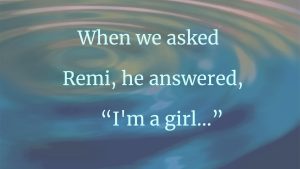

9 thoughts on “A Phony Heterosexual”
I do not care about my physician’s sexuality or other aspects of her/his private life. I just want my doctor to be knowledgeable and compassionate. Based on your essay, you are both. There is nothing phony about you; instead, you come across as a genuinely caring person who wants the best for his patients.
What you wrote is beautiful, so heartfelt & so thoughtful. I truly hope you know that you are truly a beautiful human being for doing so. May you continue to serve other beautiful humans in the most heartfelt, thoughtful & personal ways while keeping the professional approach. Keep spreading the love
I am 70. I agree “that a provider’s self-disclosure can be inappropriate or unnecessary,” – often irrelevant. But when it is relevant it can be powerful medicine. I began residency (also Rochester) in 1980 as HIV/AIDS was just tearing into the gay community. Gay patients were so grateful to have a doctor who was paying attention to what was going on, shared their fears, and welcomed their questions, even though the answer so often then was, “We don’t know.” Later in the decade, I worked full-time as a hospice physician. Friends, partners and relatives of men who were dying of AIDS would tell me how much it meant to have a doctor who was also dealing with the pain and bewilderment AIDS was causing.
Largely because of my hospice work, I became a minister in a mostly heterosexual denomination. I was out to the congregation I served. Gay congregants would tell me about making progress in their struggle for self acceptance because a gay minister was talking about God as unconditional love. After I had been with the church for several years, a straight congregant told me that getting to know my partner and me had helped him heal the ongoing trauma he experienced from sexual abuse by an older relative earlier in his life.
Doctors, ministers and other healing professionals are always part of the therapy. Self-disclosure can be a catalyst for healing for the one who seeks treatment and the one who offers it.
Thank for this honest and beautiful offering. As a residential hospice volunteer for 17 years, I never talked about being a lesbian. We were advised not to talk about our personal lives lest it lead to crossing a boundary. I did sometimes talk about losing my sister to cancer at 51 though mostly to family members not patients. Thanks for bringing this subject up.
As a senior gay woman during these past six + decades my experience has been most non heterosexual folks just know if you’re gay or not. I’ve never felt the need for any reason to date to display a flag pin or anything. Perhaps it is because of persecution of gays in the past however I doubt it. I AM who I am. Either I connect with someone or not. My sexuality has very little to do with the core being of me.
What a beautiful and honest story – thank you for writing it. It sounds like you were a good confidant and friend to Jackson and I’m glad he had you in his life. People can tell if you truly care about them, and in so doing, your presence is enough.
There are always moments in some patient encounters where we connect as human beings instead of provider. I cherish those rare moments in my long career when the Person in me was the correct Person for my patient.
This is such a universal struggle. We relate to our patients on many levels, and would be alienated from them if they knew of certain aspects of our identities. I often hesitate to share conversation about babka and brisket as it signals a part of my identity that doesn’t always feel safe to share. IYKYK. I do FP with OB yet am not a mother myself. I help patients with cosmetic concerns, but have never pursued interventions myself. And I can think of so many other factors, big and small. Thank you Samuel, for sharing this writing. I think as I grow more comfortable and settled in my identities I feel less vulnerable in sharing them, and I agree with your thought, that to be known and accepted authentically requires sharing who we really are.
I think that the fact you’re thinking about it in a way that shows compassion for patients as well as for yourself is the most important thing. Self-disclosure is a sticky subject; 30 years ago it was certainly a taboo. But when I thought some self-disclosure would be helpful to a patient, I crossed that line even then.
I just tried to be intentional. Thanks for sharing !